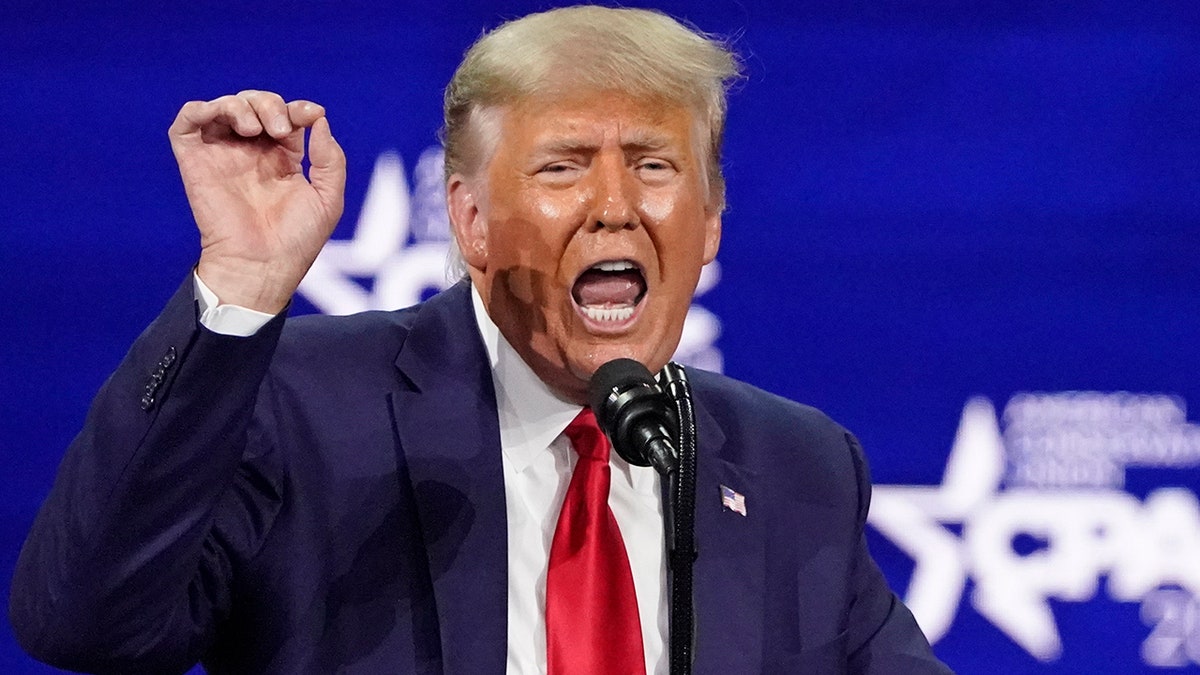Donald Trump may be gone from the White House, but he still casts a very large shadow over the Republican Party, which he reshaped and ruled over with an iron fist during his four years as president.
The former president’s clout over congressional Republicans remains formidable as his poll numbers among GOP voters remains sky-high. Trump has vowed to support primary challengers to Republicans up for reelection in 2022 who voted to impeach or convict him or others in the GOP who have crossed him. This as he flirts with a 2024 Republican presidential bid to try and return to the White House.
The acknowledgement that the GOP remains the party of Trump is likely a contributing factor in the increasing number of Senate Republican retirement announcements.
BLUNT BECOMES LATEST SENATE REPUBLICAN TO RETIRE
"All of these retirements you've seen are from the 'establishment wing' of the party," longtime Republican strategist Colin Reed told Fox News.
"I think there's a growing recognition this is not the Republican Party of days of yore, still very much the party of Trump," Reed said. "And those senators who formed their political identity before he came on to the stage are seeing those signs and taking their cues accordingly and heading for the exits."

Former President Donald Trump speaks at the Conservative Political Action Conference (CPAC), Sunday, Feb. 28, 2021, in Orlando, Fla. (AP Photo/John Raoux) ((AP Photo/John Raoux))
The latest retirement announcement came on Monday from Sen. Roy Bunt of Missouri, a member of the Senate GOP leadership who has spent nearly a quarter century in Congress.
"After 14 general election victories – three to county office, seven to the United States House of Representatives, and four statewide elections – I won’t be a candidate for reelection to the United States Senate next year," the 71-year old Blunt said in a video.
Blunt becomes the fifth Republican senator to retire rather than run for reelection in 2022, as the GOP tries to win back the Senate majority it just lost in the 2020 election cycle.
Sens. Pat Toomey of Pennsylvania, Rob Portman of Ohio and Richard Shelby of Alabama have all announced in the past couple of months that they would not launch reelection campaigns. Sen. Richard Burr of North Carolina said during his 2016 reelection that he wouldn't run again in 2022.
OLD GUARD SENATE REPUBLICANS ANNOUNCE 2022 RETIREMENTS
Two other Senate Republicans are also mulling retirements – 87-year old Sen. Chuck Grassley of Iowa and Ron Johnson of Wisconsin.
This past weekend Trump vowed to go to Alaska to campaign against Sen. Lisa Murkowski, the only one of the seven GOP senators who voted to convict Trump in the impeachment trial who is up for reelection next year.
"Trump is a contributing factor in that Capitol Hill has long been a bad workplace. Members and senators have long been unhappy in their jobs. And Trump exacerbated that," argued Doug Heye, a veteran GOP strategist and former Republican National Committee communications director.
Heye said the Jan. 6 insurrection at the Capitol by right-wing extremists and other Trump supporters attempting to disrupt congressional certification of President Biden's election victory over the then-president "massively exacerbated this."
"I get the simple line that 'Republican retires. Is Trump the reason why?'" Heye added. "That's a little too simple, but it's definitely a contributing factor."
But Heye also noted that that for some of the retiring senators, it's just "been there and done that for a long, long time."
NRSC CHAIR PREDICTS 'OVERREACH' BY DEMOCRATS WILL HELP GOP RETAKE SENATE IN 2022
Brian Walsh, a former National Republican Senatorial Committee communications director, emphasized that "retirements are a natural course of events for both parties."
"After President Obama won election in 2008, there were seven Senate GOP retirements, but that still didn't prevent Republicans from winning back six seats in the Senate two years later," Walsh pointed out.
Reed, a veteran of multiple Senate campaigns, noted that "whenever one party loses control of the White House and the Senate in the same election year, you tend to see a rush to the door of retirements, and that's what we've seen thus far in 2021. The good news for Republicans is that most of these have come in states that are red and getting Trumpier."
"I'd put Missouri firmly in that camp," Reed added. "And honestly, Roy Blunt's greatest vulnerability was from his right flank, not the general election."
CLICK HERE TO GET THE FOX NEWS APP
The Senate is split 50-50 between the two parties, but the Democrats hold a razor thin majority, due to the tie-breaking vote of Vice President Kamala Harris, who serves as president of the Senate. That means the GOP only needs a one-seat pickup to regain the majority. But Republicans are defending 20 of the 34 seats up for grabs in 2022. And the increasing number of Senate GOP retirements means more Republican primaries over the next year and a half.
Walsh, former senior adviser to GOP Sen. John Cornyn of Texas, said the retirements highlight "that if Republicans are going to win back control of the Senate in 2022, who they nominate as the candidates in these races will matter more than ever."
To make his point, Walsh spotlighted the 2012 Senate election in Missouri, where vulnerable Democratic Sen. Claire McCaskill defeated then-Rep. Todd Akin, who was favored in the race until his controversial comments on "legitimate rape" helped to sink his campaign.






